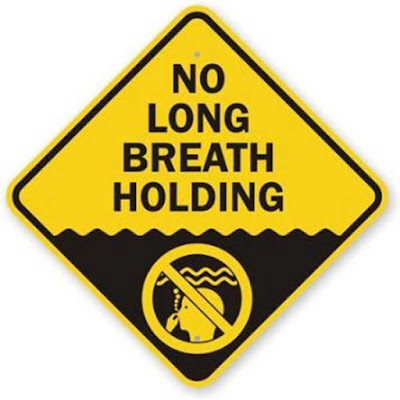Swimmers often start by taking multiple deep breaths to go a longer distance underwater, causing their blood levels of carbon dioxide to plunge. Once underwater, carbon dioxide levels fail to rise quickly enough to signal the brain to breathe, oxygen levels fall rapidly, and the swimmer faints underwater and drowns. "Because the swimmer has a low oxygen level at the time of the fainting, brain damage occurs within a couple of minutes, and death is very likely," a doctor warned in a recent public service announcement.

New York City and Santa Barbara, California are among the first US cities to outlaw long breath holding in public pools. The push to ban breath holding is largely driven by families who have lost loved ones and were stunned to learn about the deadly phenomenon still unknown to many lifeguards, swim coaches and even coroners. There are no nationwide statistics on fatalities from shallow-water blackout.
But in New York state alone, four people aged 17 to 22 and "known to be advanced to expert swimmers" died in breath holding incidents from 1988 to 2011, according to a New York City health department study. Critics say the bans won't work because it is virtually impossible for lifeguards in busy public pools to detect such subtle but potentially fatal behaviour. But Santa Barbara lifeguards twice in the past year have stopped the behaviour, said Rich Hanna, manager of Santa Barbara's Parks and Recreation Department.
1 comment:
I just read an article on Neatorama about swimming wearing mermaid tails has been banned in a Canadian city. Their reasoning is that wearing the tail encourages the women and girls to hold their breath too long. The cite passing out, but not death. Many of the comments were snarky, but if they realized that the breath holding might result in death, they might reconsider. I sent this article to one of my grandsons, who is a competitive swimmer during the school year and a life guard during the summer.
Post a Comment